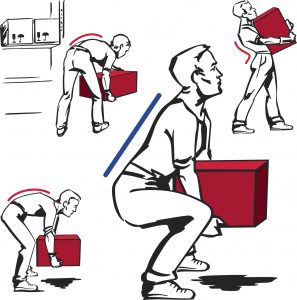 Everyone knows the safe lifting techniques – keep your back straight, keep the load close to your body and bend your knees – because they have done the proper training. Well scrap that training! According to new guidance from Workplace Health and Safety Queensland (WHSQ):
Everyone knows the safe lifting techniques – keep your back straight, keep the load close to your body and bend your knees – because they have done the proper training. Well scrap that training! According to new guidance from Workplace Health and Safety Queensland (WHSQ):
“The research evidence shows that providing lifting technique training is not effective in minimising the risk of injury from manual tasks.”



